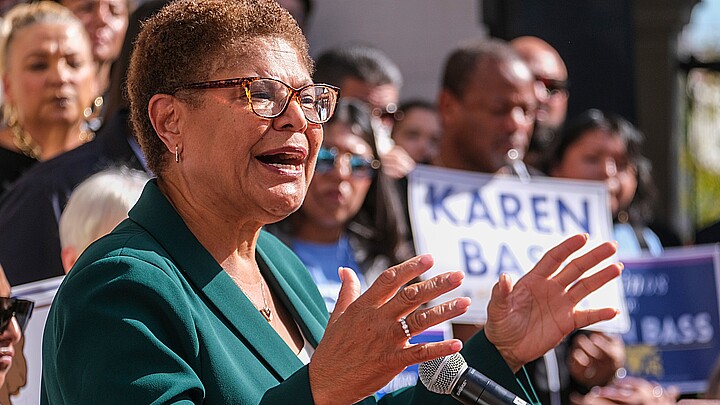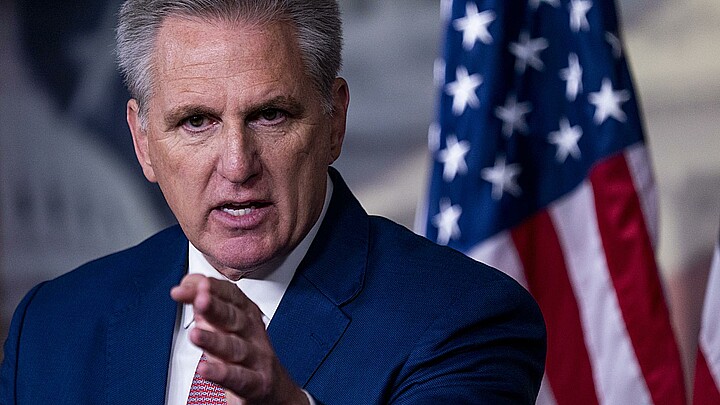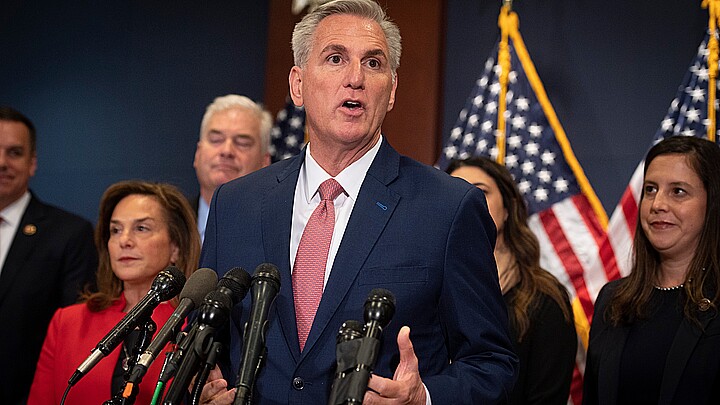Politics
Britney gets last laugh as Spears saga sparks proposed changes in California's conservatorship program
The California Department of Developmental Services (DDS) announced new actions this week to improve the system for individuals who are intellectually disabled and conserved by the state, though disability rights advocates say these reforms don’t go far enough.
August 19, 2022 6:30pm
Updated: August 21, 2022 9:57am
The California Department of Developmental Services (DDS) announced new actions this week to improve the system for individuals who are intellectually disabled and conserved by the state, though disability rights advocates say these reforms don’t go far enough.
The department currently serves as the court-appointed conservator for 413 individuals with intellectual and developmental disabilities in the state. About 57,000 people have reported a conservator to DDS regional centers across the state, though DDS does not serve as the conservator in these cases.
Earlier this week, the department announced it would undertake several actions to “enhance the experience of individuals with intellectual and developmental disabilities who are conserved by DDS.” These actions include forming a panel of national subject matter experts to review DDS’ conservatorship program and enhancing reviews of DDS’ 413 conservatees by setting up visits, assessing their living arrangements and reviewing whether additional supports are needed.
“DDS is committed to working with our partners, including consumers and families, to effect positive change to DDS’ conservatorship process,” said DDS Director Nancy Bargmann. “This includes building on our collective work in supporting individuals who have an intellectual or developmental disability through person-centered and culturally responsive approaches.”
The announcement from the department came days before ABC 10 released the first of a multi-part docuseries revealing failures of the department’s conservatorship system. The first part of the series was released Thursday night, telling the story of a family whose son was taken by DDS and placed under a limited conservatorship.
California has three different kinds of conservatorships – general probate conservatorships, LPS (Lanterman-Petris-Short) conservatorships and limited conservatorship. Limited conservatorships are designed for people who are developmentally disabled.
Under a limited conservatorship, a judge can decide what decisions a conservator – who is 18 years or older and acts in the best interest of the person – can make. Judges can choose to take away a disabled person’s ability to determine their residence, give consent to medical treatment and even get married, according to Disability Rights California. In some cases, DDS becomes the conservator for people placed under limited conservatorships.
Conservatorships were brought into the national spotlight most recently when pop star Britney Spears shared her story about living under a conservatorship, which exposed the control her father, Jamie Spears, had over many aspects of her life.
Disability rights advocates say Spears’ experience with conservatorship and her story shed a spotlight on what many experience in the conservatorship system.
“While Britney's fame may be unique, her experience in the current conservatorship system is not,” Will Leiner, a managing attorney in Disability Rights California’s legal advocacy group, told The Center Square. “Many in the disability community, including Disability Rights California, have spoken out for a long time about the harms of conservatorship – the apathy and ease in which rights are taken away in almost every case.”
Leiner added that Spears demonstrated “how easily people can become trapped in a system that strips away their fundamental civil rights to choose how their life unfolds and how difficult it is to escape from that system.”
The “damaging impacts” of the existing conservatorship system are the reason groups like Disability Rights California believe additional reforms to the state’s conservatorship program are needed, Leiner said.
“Disability Rights California welcomes the actions by DDS to bring greater accountability and transparency to a process that’s often shrouded in secrecy and strips people of their fundamental human right to direct their own lives,” Leiner said. “But additional reforms remain necessary to fix a deeply problematic conservatorship system of which DDS is one part.
“California must do more to strengthen and expand access to less restrictive alternatives, like supportive decision-making, make it easier to review and get out of conservatorships and improve oversight of conservators.”
Several disability rights groups threw their support behind Assembly Bill 1663, which would establish a “supportive decision making process” where a person with a disability could have one or more trusted supporters to help them act on their own choices. If passed, California would join 18 other states in codifying this framework, according to Leiner.
The bill would also reform procedures in the process, including prioritizing a conservatee’s preference and prior conservator’s preference for who should be their conservator. The bill would not allow regional centers to act as a conservator but would allow the centers to act as a designee of the Director of Developmental Services, who could be a conservator if the conservatee has not chosen another qualified person.
Disability Voices United President Judy Mark told The Center Square that this legislation would address some issues that arise when regional centers act as both a conservator and a “gatekeeper” of services for disabled individuals. Because these regional centers are tasked with acting as an advocate for their conservatee while also providing services, Mark said it results in individuals “not getting a particularly a whole person, person-centered set of services and supports that gets them inclusion in the community.”
Mark said that’s part of the reason that Disability Voices believes DDS’ reforms “don’t go far enough” and further changes through AB 1663 are needed.
Ultimately, Mark said Disability Voices believe DDS should not be in the position where it can be the conservator of anyone.
“We're never going to get to the right place until we eliminate the possibility that regional centers can conserve people and that we find alternatives for people, whether it's family members, or community folks or legal services, lawyers or people who are independent and act as the advocates for people with disabilities,” Mark said.










